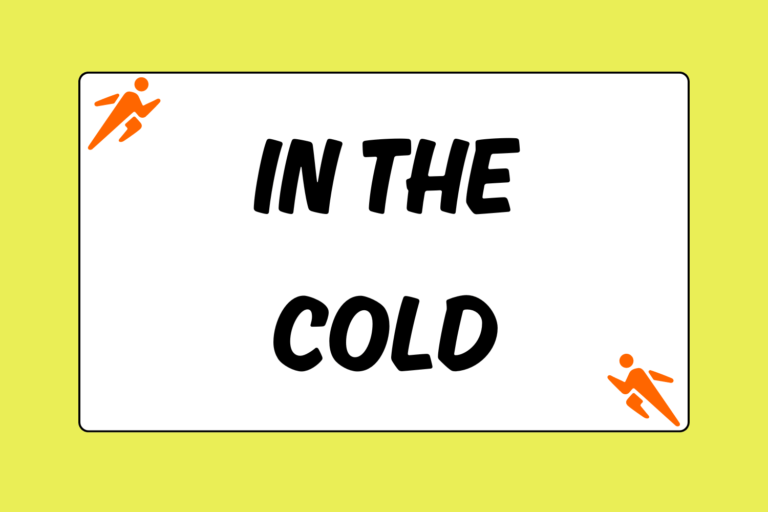Running in hot, humid weather can be hard, inconvenient, and often dangerous.
The hard part can’t really be avoided—the hotter the temperature, the tougher the run. But as inconvenient as it is to wake up early or go to bed late just to avoid getting heat stroke while running, knowing that it is a finite concern (it can’t be summer forever) and making sure you get enough recovery can help you deal with the necessary changes.
There are two main concerns when it comes to running in the heat: Overheating and dehydration. Below is a clear explanation of what exactly causes heat-related illness in the body, as well as ways to stay safe and sane during the dog-days of summer.
Overheating
Overheating is the result of a battle within your body to both cool the blood and refuel the muscles during exercise.
When your body heats up internally, it begins to sweat. Warm blood from within the body is then sent to the surface which serves two purposes: the heat from the blood forces the sweat to evaporate from the surface of the body and the blood itself cools down after making contact with the relatively chilly underside of the skin.
But at the same time, blood is also needed to supply the muscles with oxygen. The muscles can’t cool down or function properly without it.
In the end, the muscles’ need for O2 usually wins. And the subsequent limited amount of blood-flow to the skin causes the sweat to evaporate less efficiently. The blood stays hot and deeper inside your body, while your sweat causes a kind of greenhouse effect on the surface of your skin.
That is what causes the body to overheat.
Dehydration
Dehydration is the process of the body losing fluid, usually through sweating. When the body sweats, it loses both water and electrolytes (vital minerals like sodium potassium, zinc, and b-vitamins) which is why it is important to take in water and sport drinks.
Overheating and dehydration occur more often in hot and humid weather because all the normal processes that occur in the body while exercising are forced into a kind of overdrive. The heart rate rises, the muscles lose oxygen more quickly, and your internal temperature bumps up more quickly than the body can handle.
Stay Cool (relatively speaking)
There are things you can do to avoid dehydration and overheating. Below are some tips to follow when the humidity is thick and the temperature is high:
Acclimate:
The body can acclimate to hot and humid weather, the same way it can many other stresses like altitude or increased mileage. So as summer begins (or if you are traveling to warmer weather), start slow. Give yourself 1-2 weeks of easy running to adjust. The body is an incredibly efficient machine!
Be Realistic:
Lower your expectations. You will probably run slower and feel worse doing it, so just be prepared. Think of it as altitude training without the mountains and with a lot more sweat.
Know When to Head In:
If you have access to an indoor facility, use it, especially if the heat index—air temperature relation to the relative humidity—is high (see graph to the right). You aren’t wimping out, you’re being smart.
Remember the Rays:
Even though a runner’s main concern is usually overheating or dehydration, don’t forget to protect yourself from the actual UV rays as well. Make sure to wear sunglasses and sunscreen, especially if you head out towards the middle of the day since both sun poisoning and sun burn actually increase the risk of overheating by increasing the temperature on the surface of the skin.
Take off the Hat:
You lose the largest amount of body heat from your head, so keep it uncovered during the summer season. If you have to protect your face or scalp from the sun, go for a mesh, loose-fitting style.
Pour it On:
A quick douse of water is an easy way to temporarily lower body temperature, so take full advantage of any hose or water fountain you come across on your run. If you have any extra clothing, soak it in the cold water and wrap it around your head or wrist to maintain a lower temperature for a longer period of time.
Lighten Up:
If possible, wear light-colored, loose-fitted, microfiber clothing. Light colors reflect the sun and loose clothing will help with ventilation. Try to avoid cotton, which will just become heavy and hot ince you start sweating.
Drink Up (Not Just Water):
Drink a lot of both water and your favorite sport drinks — between six and 12 fluid ounces every hour–during hot weather. The more water you have stored in your body, the less at risk you are for dehydration and the more efficient your body will be at circulating blood.
Get Up Early or Get Out Late:
The coolest part of the day is the early morning, but it is also usually the most humid. Late evening tends to be slightly warmer, but less humid. Just pick and choose what works best for your schedule, but try to avoid running between noon and 3:00 p.m.
Reach for the Salt:
Most people try to avoid salty foods (and it is generally a good practice), but for runners in the midst of a heat wave, salt can literally be a lifesaver. That white film left on your body and clothes after a hot run? That’s salt. And though it gets a bad rap in the health world, salt is a vital contributor for proper muscle and cardiovascular functioning in athletes. If you are feeling light-headed after an exercise, grab some salty grub and go lie down.
Known What You’re Getting Into:
Ignorance is not bliss. Be prepared for the conditions before you head out the door.
Choose Wisely:
Run on a shaded path or stick to a route with water fountains along the way. Or if you can, run along a body of water where temperatures are usually more temperate.
Take Control
In the end, just knowing the warning signs of heat-related illness will help you stay safe. Symptoms include severe headaches or nausea, general confusion or loss of concentration, muscle cramps or spasm, lack of sweating, and feeling faint.If you experience any of these after running, try pressing an ice pack against your neck, wrist, or core to lower your body temperature. If you still feel sick, get help or call 911.





